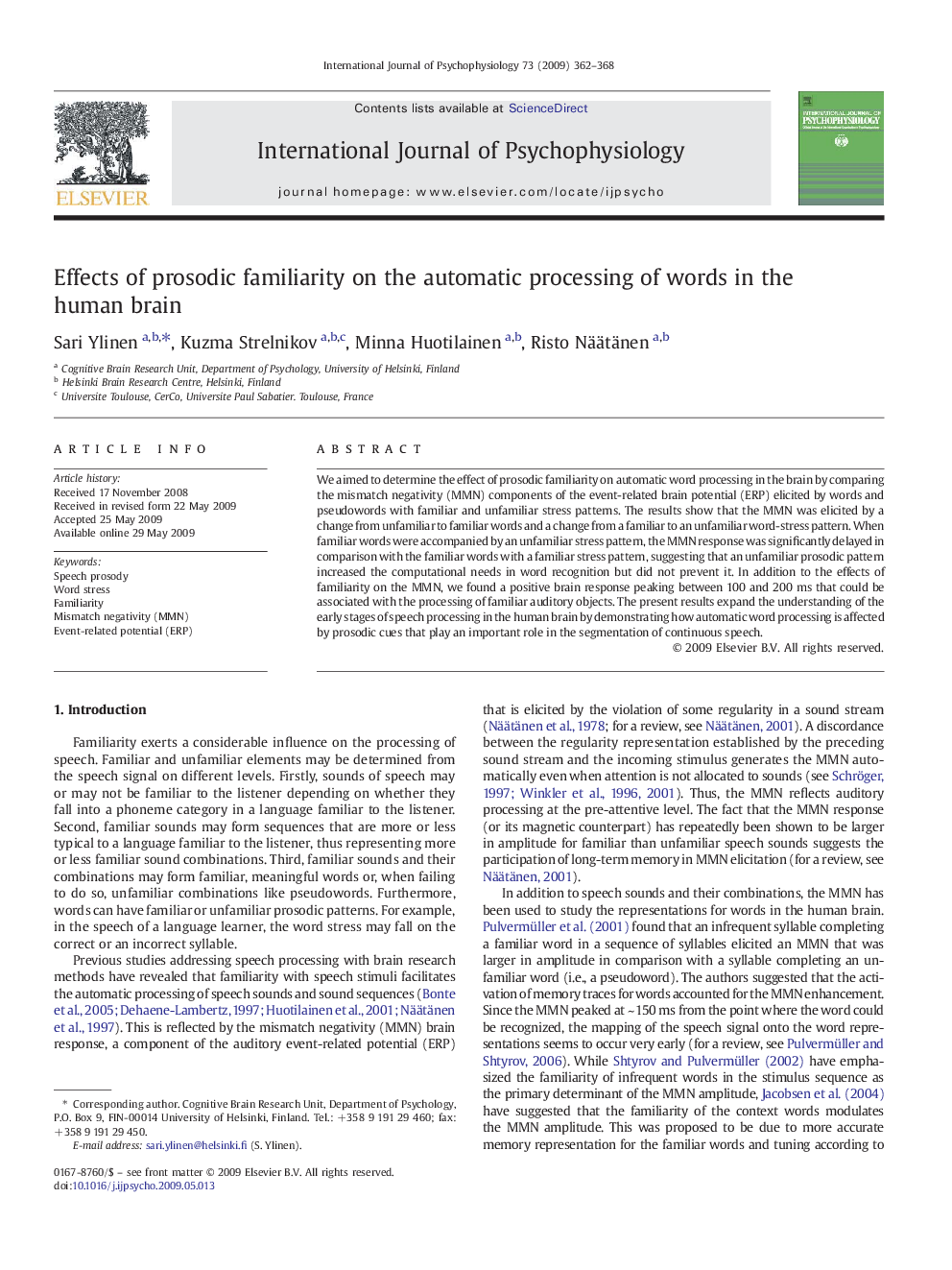| Article ID | Journal | Published Year | Pages | File Type |
|---|---|---|---|---|
| 7296493 | International Journal of Psychophysiology | 2009 | 7 Pages |
Abstract
We aimed to determine the effect of prosodic familiarity on automatic word processing in the brain by comparing the mismatch negativity (MMN) components of the event-related brain potential (ERP) elicited by words and pseudowords with familiar and unfamiliar stress patterns. The results show that the MMN was elicited by a change from unfamiliar to familiar words and a change from a familiar to an unfamiliar word-stress pattern. When familiar words were accompanied by an unfamiliar stress pattern, the MMN response was significantly delayed in comparison with the familiar words with a familiar stress pattern, suggesting that an unfamiliar prosodic pattern increased the computational needs in word recognition but did not prevent it. In addition to the effects of familiarity on the MMN, we found a positive brain response peaking between 100 and 200Â ms that could be associated with the processing of familiar auditory objects. The present results expand the understanding of the early stages of speech processing in the human brain by demonstrating how automatic word processing is affected by prosodic cues that play an important role in the segmentation of continuous speech.
Related Topics
Life Sciences
Neuroscience
Behavioral Neuroscience
Authors
Sari Ylinen, Kuzma Strelnikov, Minna Huotilainen, Risto Näätänen,
